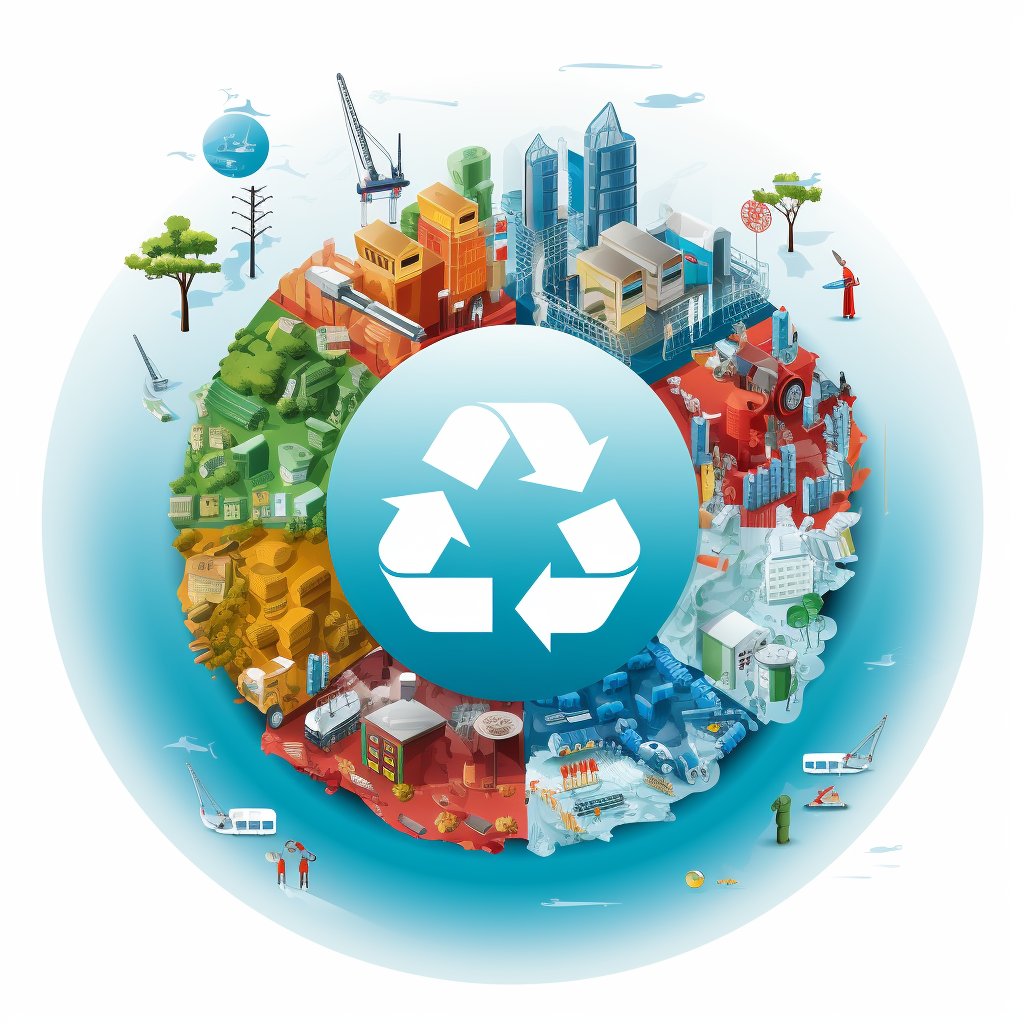The informal sector is a critical component of the economy, particularly in developing countries where it provides millions of people a significant source of employment and income. However, it is also associated with several challenges, including limited access to financial services, lack of legal protection, and poor working conditions. Formalising the informal sector can help address some of these challenges, and this article will discuss different approaches to formalising the informal sector in the plastics and recycling industries.
Plastic production and waste have become pressing issues for environmental sustainability, prompting a need for the recycling industry to step up and address the challenges of managing waste. The informal sector is in need of operating outside the formal economy, and lacking resources and services for effective recycling. Formalising the informal sector can be a critical step toward addressing these challenges and improving waste management systems.
Industrial usage of formalising the informal sector
Formalising the informal sector can lead to several benefits for the plastics and recycling industries. For example, formalisation can improve the quality and consistency of materials used in the production process, leading to more efficient production and reducing waste. Formalisation can also help to create a more competitive marketplace, as formalised businesses are more likely to have access to financing, which can help them to expand their operations and invest in new technologies.
Application areas of formalising the informal sector
Formalisation can be applied in the plastics and recycling industries. For example, the registration of informal plastic manufacturers, who can be provided access to training and equipment. This can improve quality and reduce waste. Formalisation can also involve establishing collection points for plastic waste, which can be sold to formal recycling companies.
Consumer product examples of formalising the informal sector
formalising the informal sector can also have a significant impact on the production of consumer products. For instance, in the recycling industry, formalisation can involve the registration of informal waste pickers, who can then be organised into cooperatives. These cooperatives can be provided with training and equipment, which can help them to improve the quality and quantity of the waste they collect. The waste collected can then be sold to formal recycling companies, who can process it into new products, such as plastic bottles and containers.
Material properties of formalising the informal sector
formalising the informal sector can also lead to improvements in the material properties of recycled plastic. For example, formalised recycling companies can invest in new technologies that can help to improve the quality and consistency of recycled plastic. This can make it possible to produce recycled plastic that is of a similar quality to virgin plastic, which can be used in a wide range of applications, including consumer products and industrial packaging.
Future trends in recycling trends
The formalisation of the informal sector is likely to continue to be an essential trend in the plastics and recycling industries in the future. One potential area of growth is in developing new technologies that can help improve the efficiency and quality of the formalisation process. For example, there is significant potential for the use of digital technologies, such as blockchain and artificial intelligence, to help formalise the informal sector.
Different Formalising the Informal Sectors
In addition to the areas discussed above, formalising the informal sector can significantly impact market price developments and global markets. Formalisation can create more stable and transparent markets, leading to more consistent and predictable pricing. This can benefit both producers and consumers by reducing price volatility and providing greater price stability.
Furthermore, formalisation can also have a positive impact on global markets. Formalised businesses are more likely to comply with international standards, which can help to increase their access to global markets. This can create opportunities for formalised firms to expand their operations and access new markets, significantly impacting the global economy.
Looking towards the future, the formalisation of the informal sector is expected to continue to grow in importance. As the global economy becomes increasingly interconnected, there is likely to be greater demand for formalised businesses that can comply with international standards and regulations. This is likely to create opportunities for businesses that can adapt to this changing environment and to develop new technologies and approaches to formalisation that can help them remain competitive.
How formalising the Informal Sector around the world impacts environmental and economical
Formalising the informal sector has both environmental and economic impacts around the world. Regarding environmental impact, formalisation can improve waste management and resource utilisation. Formalised businesses are more likely to comply with environmental regulations and standards, which can help to reduce pollution and mitigate the negative impacts of waste disposal. Additionally, formalisation can help create more efficient and effective recycling systems, reducing waste and improving resource utilisation.
Formalisation can also have a significant impact on the economy. By creating more stable and transparent markets, formalisation can lead to more consistent and predictable pricing, benefiting producers and consumers. Formalisation can also create opportunities for businesses to access financing and invest in new technologies, which can improve productivity and efficiency.
Formalising the Informal Sector
Formalising the informal sector is an important trend in the plastics and recycling industries. It can help improve the quality and consistency of materials used in production, create a more competitive marketplace, and improve the material properties of recycled plastic. As such, it will likely continue to be an important area of focus for professionals working in these industries and university students studying related fields.
Formalising the informal sector in the plastics and recycling industries is a critical step towards building a sustainable and resilient global economy. By supporting the formalisation of these businesses, we can improve waste management systems, reduce environmental impacts, and create economic opportunities for workers and entrepreneurs. Join the conversation on the benefits of formalising the informal sector and help shape the future of sustainable development.
The informal sector plays a crucial role in the recycling industry, but its unregulated and informal nature can also create challenges for waste management systems.





